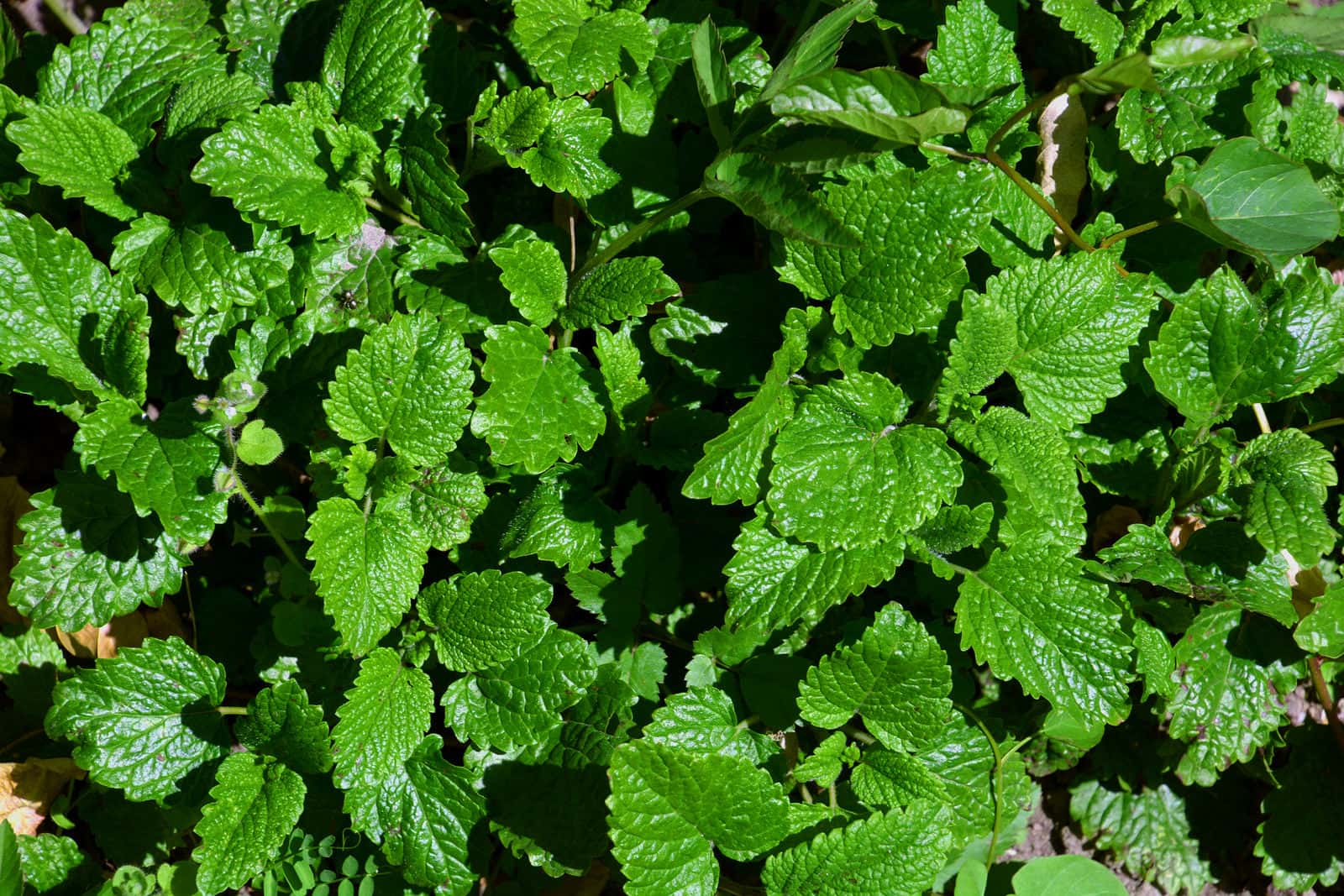
Some people with insomnia just can’t get to sleep because their minds are racing. They may retrace the day and think of what they should have said or done differently. Perhaps they worry about events in the future. Either way, their motor minds keep them wide awake. Is there a way to overcome this tendency and get the sleep they need? One reader has a simple home-made remedy.
Lemon Balm to Overcome Midnight Motor Mind:
Q. Sometimes I get what I call midnight motor mind. I wake up in the middle of the night and can’t get back to sleep because my mind insists on churning over thoughts from the day.
I grow lemon balm, aka Melissa, a member of the mint family, in my garden. In the summer, I take equal parts lemon balm leaves and boiling water. After steeping it for 15 minutes and straining it, I add the same volume of sugar and boil the concoction to make a syrup. Then if I wake up at night, I take a spoonful. It usually does the trick.
Science to Support Lemon Balm for Insomnia:
A. Thank you for this suggestion. We suspect that many people can relate to your description of midnight motor mind keeping them awake.
Lemon balm has traditionally been used as a gentle herbal sleep aid. A pilot study found that people having trouble sleeping due to anxiety did better when they took Melissa officinalis (Mediterranean Journal of Nutrition and Metabolism, Dec. 2011).
In a more recent pilot trial, people with mild insomnia slept better when they took lemon balm in combination with melatonin, vitamin B6, California poppy and passionflower (Complementary Therapies in Medicine, Aug. 2019). This European study utilized a product called Novanuit® Triple Action and lasted two weeks. No one in the study took placebo pills, however, so we must consider the results preliminary.
Passionflower does have its advocates, though. At least one reader relies on this herb.
Passionflower for Sleep Without Nightmares:
Q. Valerian gives me horrible nightmares. Really, I’d rather have insomnia.
I work in a health food store and have heard similar complaints from several of my customers. Other people swear by it, though.
Passionflower helps me relax and get to sleep without any nightmares. People with insomnia might also find chamomile helpful.
A. “Vivid dreams” were the most common valerian side effects reported in one pilot study (Phytotherapy Research, Sep. 2001). Many volunteers had no side effects with this herbal treatment, however. Chamomile, passionflower, lemon balm and lavender may all help people sleep better.
Keeping a steady bedtime and having a regular routine for relaxing are other nondrug approaches that can ease sleeping problems. A meta-analysis of 19 studies found that people who engage in regular physical activity (such as tai chi) reported better quality of sleep (Sleep Medicine Reviews, Aug. 2024). Sleep efficiency also improved.
Learn About Other Approaches to Overcoming Insomnia:
You can learn about other herbs that help overcome insomnia, such as ashwagandha, lavender and valerian, in our eGuide to Getting a Good Night’s Sleep. This online resource also covers sleeping medicines and nondrug approaches such as magnesium, tart cherries, 5-HTP and acupuncture. We hope lemon balm or another simple remedy will help others conquer midnight motor mind.
We interviewed Dr. Roger Seheult recently for our public radio show and free podcast. Dr. Seheult is a sleep medicine specialist who describes why sleep is important for health and what you can do about common sleep problems. It is Show 1393: How to Get the Sleep You Need.
Citations
- Cases J et al, "Pilot trial of Melissa officinalis L. leaf extract in the treatment of volunteers suffering from mild-to-moderate anxiety disorders and sleep disturbances." Mediterranean Journal of Nutrition and Metabolism, Dec. 2011. DOI: 10.1007/s12349-010-0045-4
- Lemoine P et al, "A combination of melatonin, vitamin B6 and medicinal plants in the treatment of mild-to-moderate insomnia: A prospective pilot study." Complementary Therapies in Medicine, Aug. 2019. DOI: 10.1016/j.ctim.2019.05.024 Share on FacebookShare on TwitterShare on Google+
- Wheatley D, "Kava and valerian in the treatment of stress-induced insomnia." Phytotherapy Research, Sep. 2001.
- Riedel A et al, "The effect of physical exercise interventions on insomnia: A systematic review and meta-analysis." Sleep Medicine Reviews, Aug. 2024. DOI: 10.1016/j.smrv.2024.101948

